- Home
- John Ellsworth
Annie's Verdict
Annie's Verdict Read online
ANNIE’S VERDICT
Michael Gresham/Annie Gresham Series Book 1
John Ellsworth
Contents
Chapter 1
Chapter 2
Chapter 3
Chapter 4
Chapter 5
Chapter 6
Chapter 7
Chapter 8
Chapter 9
Chapter 10
Chapter 11
Chapter 12
Chapter 13
Chapter 14
Chapter 15
Chapter 16
Chapter 17
Chapter 18
Chapter 19
Chapter 20
Chapter 21
Chapter 22
Chapter 23
Chapter 24
Chapter 25
Chapter 26
Chapter 27
Chapter 28
Chapter 29
Chapter 30
Chapter 31
Chapter 32
Chapter 33
Chapter 34
Chapter 35
Chapter 36
Chapter 37
Chapter 38
Chapter 39
Chapter 40
Chapter 41
Chapter 42
Chapter 43
Chapter 44
Chapter 45
Chapter 46
Chapter 47
Chapter 48
Chapter 49
Chapter 50
Also by John Ellsworth
Email Signup
About John Ellsworth
Annie Returns…
1
Gerry’s expiration date was fast approaching when he flew to Chicago to meet with me.
"Michael Gresham!" he called to me as he tramped up the jetway. "Thanks for taking the time to come out to O'Hare, man! Let's get a drink!"
We found the lounge on the main concourse and stepped inside. He ordered a martini; I ordered coffee. Before we were finished with our talk, he had ordered a second. But even with the alcohol onboard his hands shook. His eyes darted all around the lounge and back out into the concourse, looking and watching, always watching.
"I got a letter," he said under his breath. "It arrived at my office on October third. It's from a bank in the Caymans. According to the letter, the bank says I have an account with just over twelve-million dollars in it."
He passed me the letter. I studied it and nodded appreciatively.
"Twelve million dollars. Isn't this good news?" I asked.
"It would be except I didn't put the money into the account. I also don't have any Cayman Island bank accounts. But they say I do. I've only been there once in my life, nearly twenty years ago."
I wasn't sure I heard correctly. "You didn't put the money in the account? And you didn't even open an account there? But it says in this letter you have twelve million in an account in your name?"
"Exactly. That's my correct address, too. Not many people know where I live."
Now I was perplexed. "Has anyone asked you about the money?"
"Just the bank. They're recommending I move it from a straight checking account into a savings account."
"No one else has said anything to you about it?"
"Nobody has come asking for their money back if that's what you're driving at. I'm sure it's stolen, and someone's going to turn me in and ruin my political career."
Gerry was the Climate Party's nominee in the race for President of the United States. In one month the presidential election of 2016 would tally up all the votes, and we'd know who the next president was going to be. Gerry didn't expect to win; green parties never win. But he had intended to make a statement about the climate. Now he feared that some enemy was going to step forth and claim Gerry embezzled the money. His political career—and chance to make a climate statement in the election—would be ruined.
I asked Gerry, "Who would want to harm you in this way?"
He favored me with a patient smile as a professional might do with a novice—which I was, politically.
"Lots of people would want to hurt me. I'm known as a flaming liberal from New York. That's strike one. Strike two is my million enemies in fossil fuel that would love to see me crash and burn."
"What's strike three?"
He shot a look around the lounge. "That's just it—I don't know what strike three is. That's what's keeping me up nights."
"Gerry, enemies don't usually open a bank account in your name and fund it with twelve million dollars," I said. The whole concept ran counter to anything I'd ever seen in my three decades of law practice. People did terrible things to each other; giving an enemy millions of dollars wasn't one of them.
"Now look at this," Gerry said. He withdrew a second letter from his breast pocket, opened the envelope and smoothed the letter in front of me on the table. It was just a few sentences.
"So this letter is from your PAC?"
"Yes. My PAC is named GULP."
"GULP?"
"Government Use of Land Policy. GULP. I was on the board. It's where the money comes from to run my campaign."
"And according to this letter, you're being accused of embezzling twelve-million dollars of GULP funds?"
"Yes."
"There's also a demand that you return the money. Why not just do that?"
"That's what I'm thinking, too. Just be done with it."
"So, Gerry, what do you need from me?"
"I want you to arrange to give the money back in exchange for a receipt stating that the whole thing was a misunderstanding, that I didn't embezzle the funds, and that no more will be said."
"But why me?"
He took a large mouthful of his martini and swallowed hard. "I wanted someone not on the East Coast. You're here in Chicago. Plus, I've known you since our first year in law school. You were always honest and not looking to get your name in the paper at your clients' expense. I felt I could trust you, bottom line."
"All right. Today is October sixth. You want the money returned before election day, correct?"
"Yes," Gerry said, "I want the statement from them immediately. My fear is that otherwise they'll go to the media and claim I've embezzled them. If that were to happen, I'd lose ninety percent of the vote I usually get. I want to give it back before they can do that."
I considered what he was asking me to do. I trusted him--at least as much as streetwise lawyers like me ever trust anyone: exceeding caution seasoned with exceeding suspicion. But did I know that much about him? We'd attended law school together at Georgetown. He made Law Review; with my healthy C average, I did not. In fact, he was the editor of Georgetown Law Journal and wrote an incredible article his senior year supporting Tennessee v. Garner. That case made it a crime for a cop to shoot a fleeing suspect in the back unless there's a threat of serious physical injury to the cop. Gerry did a number on the local D.C. police for a pending shooting case in which an unarmed black teen had been used for target practice by two uniforms when he tried to run off with a quart of beer shoplifted from a 7-Eleven on G Street.
"I'm impressed you came all the way to Chicago to talk," I told him.
"Michael," he said over the double martini, "there're some very bad people after me."
"Any idea why someone at your own PAC would come after you?"
"I have some serious detractors in the PAC. The guy who wants to ruin me is Paul Wexler. At one time we were friends, but no more. Now he'd just as soon have me dead and buried."
"So what can I do to help?"
It was what he was hoping I'd say.
"I want to give you power of attorney over the bank account. I want you to give the money back and clear my name. But I've also got to protect myself."
"How does that work?"
>
“If they announce I embezzled the funds a day or two before the election I’ll keep their damn money, Michael. Which means they'll send someone after me. They'll murder me. If that happens, I want you to make sure the money goes to my kids."
"Because you wouldn't be around to take care of them."
"Do you remember Kitty Sanders from law school? We were married for twenty years. But she passed away several years ago. My kids would be orphaned."
“I’m sorry."
"I'm scared, Michael. So scared I don't sleep. Don't eat. My hands shake. My youngest daughter, Annie, is special needs. The money has to go to her. Plus, there's her brother and sister. They both get a share."
I took a sip of the airport battery acid coffee. "So I'm to act as their lawyer?"
"No, as their power of attorney."
He opened his attaché case then and rummaged around inside. "I have a power of attorney right here--somewhere. Here it is. Can you read it over and sign it? I've already signed it, appointing you."
I accepted the two-page document and scanned through it three lines at a time as lawyers will do with legal documents. It was all there.
"Before I sign, where is this bank account?"
"That's the thing. I moved it all with a wire transfer this morning.
"Moved it where?"
"Avtovazbank. Moscow, Russia."
"Why Russia?"
"Because they haven't crumbled to the U.S. Government's demands that accounts of U.S. Citizens be reported by the bank to the U.S."
"You're saying it's in an off-shore account and you haven't reported it to the Treasury Department?"
"Exactly. Technically I could be looking at criminal charges for failure to report."
I passed the unsigned document to Gerry. No way I'd get in the middle of a political squabble in a national election. I was a criminal lawyer, not a politician. In fact, I hated politics and wanted nothing to do with the whole sordid mess.
"I can't help you, Gerry. I just finished up a trial in Moscow, and I was never so glad to leave some place in my life. You think we've got some terrible judges in the U.S.? You ain't seen nothing until you've litigated in Russia."
"I appreciate that, Michael. But there's no need to go to Russia. This can be done from your office here in Chicago. The withdrawal and distribution will be accomplished electronically."
Which helped to melt away my biggest complaint. "Well--"
"Please, Michael. I don't have much time. I really need this. My kids really need this!"
He handed the power of attorney back. Tears washed into his eyes, and I weakened at his distress. We had been classmates; we went way back. And I could do it without leaving my office. So, I took it and signed without comment and passed it back to him. Then we did a second one, this one for me. Both were signed originals.
"Done," I said.
"You're my hero, Michael. I'm saying a Birkat HaGomel for you on Friday."
"Well, thanks for that. Now what? Are you ready to see Chicago? Maybe hit a Bulls game?"
He looked at his watch. "No can do. I've got a flight out of here in forty-five minutes."
"You mean you flew all the way here just to get my signature and turn around and go right back?"
"Afraid so. My kids are back in Georgetown. I can't stop over."
We talked until he walked down the ramp to board his return flight. He'd had another martini, and I had switched from coffee to Filbert's Root Beer, a secret wonder drink among Chicagoans. He turned the corner at the bottom of the ramp and was gone.
Two days before the election, a story broke in the Washington Post. The story accused Gerry of embezzlement of PAC funds. What Gerry had feared was now headline news. His campaign was ruined; he got less than one percent of the vote two days later. I was sure he'd now move the money into his kids' names, which would let me off the hook for any duties I had agreed to perform in the power of attorney. I felt relieved, but I also felt sorry for Gerry. He didn't deserve to lose in a landslide when he'd been set up and played. He called me the next day after the election and said, "Now you see why I want to keep the money? I've got nothing else to lose, Michael."
“Except your life.”
“Except my life. I haven’t made the decision yet for that very reason: if something happens to me my kids are all alone.”
“Return the money, Gerry,” I said. “Your kids need you.”
“Maybe you’re right. In fact, you are right. I’ll return it.”
I thought it was all done. We hung up still friends with him expressing his gratitude to me. I thought nothing more about it.
But then Gerry suddenly flew into Chicago again, insisting I drop everything and meet him at O'Hare. We met in the airport lounge. He insisted he was going to keep the money for his kids, which put a bounty on his head.
“I’ve made some very powerful people very angry by refusing to return the money."
“I thought you were going to return it?”
“I can’t. I’m mad as hell at what they did to me. No way am I giving it back.”
“Are they threatening you?”
“Not coming right out and making a threat. But it doesn’t matter: I told them where they could stuff it. Maybe I overdid it, but they killed me in the election."
"So now what?"
"Just be ready, Michael. If anything happens to me, get the money to my kids."
"That's a tall order, Gerry."
"Promise me, Michael. You're my only hope, my only friend at this point."
I sighed and shook my head. "I'll do what I can."
Just then they announced his flight.
"I've got a return flight to catch," he said and headed for the jetway.
That was the last time I saw Gerry. I drove back to my office praying he'd be okay and I wouldn't have to get involved.
I almost made it, too.
But then Gerry's expiration date rolled around.
2
Rudy was a torpedo, an enforcer, a hitman, all of these things and little else. He loved the Washington Redskins because he lived just south of the Beltway in a one-bedroom where the whole universe spoke Redskins this and Redskins that. And he loved his mother--God rest her brave and devout fish-on-Fridays soul. And Rudy hated politicians--a hard if not impossible pill to swallow for someone living in Washington, D.C. So the shooting of Gerry Tybaum would be easy: the guy was the Climate Party's candidate, a politician. Rudy would've killed him for free except he had received $50,000 for the hit. Ordinarily, Rudy would've taken his fee and headed for Boca and the horses, but first, he had one more piece of business, a piece insisted on by the man who hired him to kill the father: Rudy was also to murder Tybaum's children. The man who hired him was Paul Wexler at Gerry's PAC's headquarters.
Paul Wexler had written the demand letter to Gerry on the PAC's letterhead. It demanded the full return of the twelve million dollars which, it claimed, Gerry had embezzled. The demand letter didn't bring rain. So Wexler turned to Rudy. He had obtained Rudy's name from a Washington Post article announcing his release from prison. Rudy had become a legend, being released to come home after doing a twenty-year stretch for the murder of a senator's chief of staff. He met Rudy at a bar in a dangerous neighborhood in Baltimore.
Rudy would do the job for fifty-thousand dollars.
Before the hit was to take place, Wexler hired Nivea Young to follow Gerry. He had to know the whereabouts of the money before Gerry went down. Nivea Young, an ex-CIA agent, followed Gerry from Washington, D.C. to Chicago. She watched him meet with a lawyer.
Young called Paul Wexler late that afternoon.
"He met with a lawyer at O'Hare airport," she told Wexler. "They talked for only about twenty minutes, then Tybaum turned around and took a flight back to D.C."
"We need to find out what they discussed," said Wexler.
"I can get into the lawyer's office," she said.
"How do you know that?"
"I followed him back downtown af
ter their meeting. He's in an office on the Loop, not far from the federal court at the Dirksen Building. It's an old, renovated building with suites of offices, lots of wood, stained glass skylights, the whole nine yards. He's on the second floor. I can be inside and out in minutes."
"Then do it. Get in, find Tybaum's file and copy it. Or find the lawyer's notes and copy those. Something was written down after their meeting. I need to locate that money."
"Why not just call the bank? You put the money there."
"That's just it; I put it in Tybaum's name. The bank refuses to give me any info now."
She nodded appreciatively. "I'll make entry into the lawyer's office tonight. Anything else?"
Just then, Wexler, brainiac that he was, took it one step further that most people might.
“Yes. Go through the lawyer's desk. If he has a gun, bring it with you."
"I'll have to check it on the airplane."
"You traveling under your name?"
"Please, Mr. W. What do you think I am?"
"Then there you are. Bring the gun."
"Anything else?" she asked.
"Just don't get caught."
"Please, Mr. W."
"I'm just trying to emphasize."
"It goes without saying."
That night, Nivea easily broke into the lawyer's office. She had one goal: the Gerry Tybaum file. Wexler had made it clear that he wanted to track down the money. Sure enough, she located a file smack on top of the lawyer's desk and opened it. There was one page inside. She ran the page through the office copier then sat down and read it through.

 Girl, Under Oath (Michael Gresham Series)
Girl, Under Oath (Michael Gresham Series)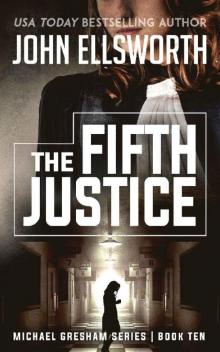 The Fifth Justice (Michael Gresham Legal Thrillers Book 10)
The Fifth Justice (Michael Gresham Legal Thrillers Book 10)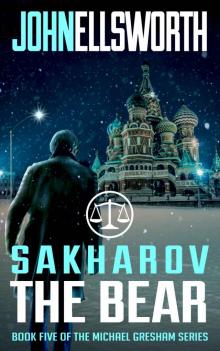 Michael Gresham (Book 5): Sakharov the Bear
Michael Gresham (Book 5): Sakharov the Bear Voices In The Walls: A Psychological Thriller (Michael Gresham Series)
Voices In The Walls: A Psychological Thriller (Michael Gresham Series)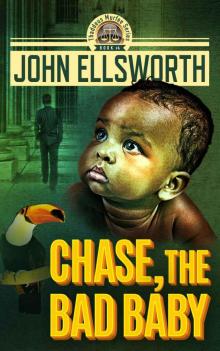 Chase, the Bad Baby: A Legal and Medical Thriller (Thaddeus Murfee Legal Thriller Series Book 4)
Chase, the Bad Baby: A Legal and Medical Thriller (Thaddeus Murfee Legal Thriller Series Book 4)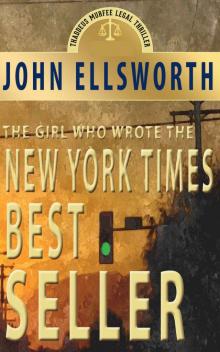 The Girl Who Wrote The New York Times Bestseller: A Novel (Thaddeus Murfee Legal Thrillers Book 8)
The Girl Who Wrote The New York Times Bestseller: A Novel (Thaddeus Murfee Legal Thrillers Book 8)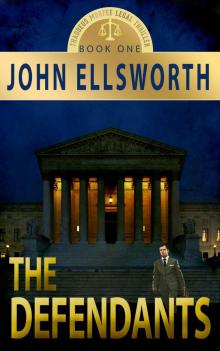 The Defendants: Crime Fiction & Legal Thriller (Thaddeus Murfee Legal Thriller Series Book 1)
The Defendants: Crime Fiction & Legal Thriller (Thaddeus Murfee Legal Thriller Series Book 1) Hellfire (Sisters In Law Book 2)
Hellfire (Sisters In Law Book 2)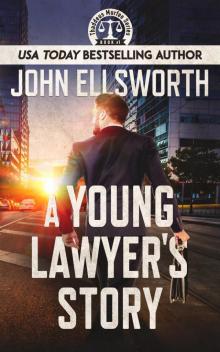 A Young Lawyer's story
A Young Lawyer's story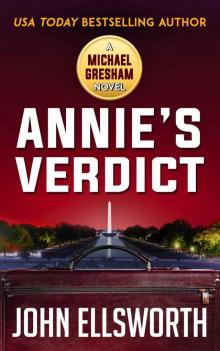 Annie's Verdict (Michael Gresham Legal Thrillers Book 6)
Annie's Verdict (Michael Gresham Legal Thrillers Book 6)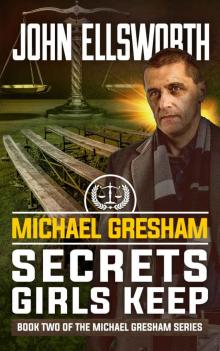 Legal Thriller: Michael Gresham: Secrets Girls Keep: A Courtroom Drama (Michael Gresham Legal Thriller Series Book 2)
Legal Thriller: Michael Gresham: Secrets Girls Keep: A Courtroom Drama (Michael Gresham Legal Thriller Series Book 2)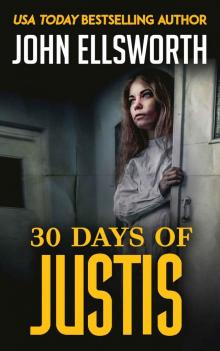 30 Days of Justis
30 Days of Justis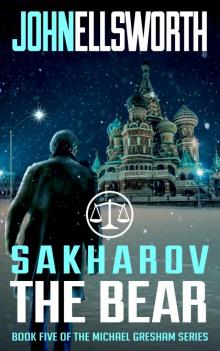 Sakharov the Bear (Michael Gresham Legal Thrillers Book 5)
Sakharov the Bear (Michael Gresham Legal Thrillers Book 5)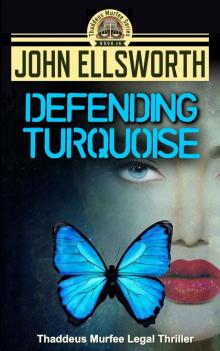 Defending Turquoise (Thaddeus Murfee Legal Thriller Series Book 5)
Defending Turquoise (Thaddeus Murfee Legal Thriller Series Book 5)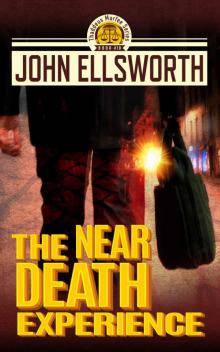 The Near Death Experience (Thaddeus Murfee Legal Thriller Series Book 10)
The Near Death Experience (Thaddeus Murfee Legal Thriller Series Book 10)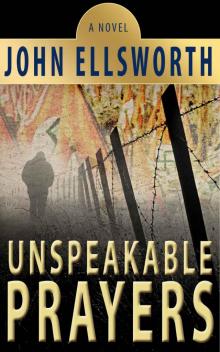 Unspeakable Prayers: WW II to Present Day (Thaddeus Murfee Series of Legal Thrillers)
Unspeakable Prayers: WW II to Present Day (Thaddeus Murfee Series of Legal Thrillers)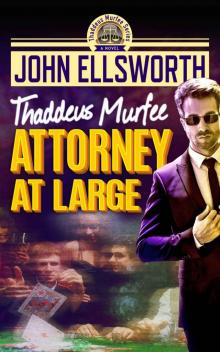 Attorney at Large (Thaddeus Murfee Legal Thriller Series Book 3)
Attorney at Large (Thaddeus Murfee Legal Thriller Series Book 3)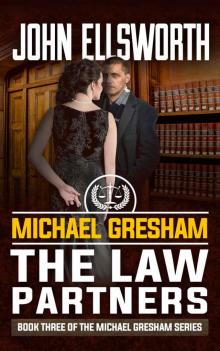 The Law Partners (Michael Gresham Legal Thriller Series Book 3)
The Law Partners (Michael Gresham Legal Thriller Series Book 3)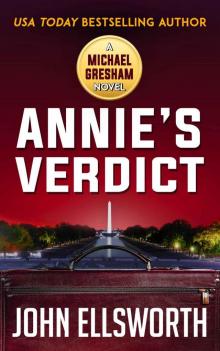 Annie's Verdict
Annie's Verdict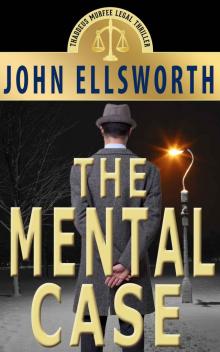 The Mental Case (Thaddeus Murfee Legal Thriller Series Book 6)
The Mental Case (Thaddeus Murfee Legal Thriller Series Book 6)